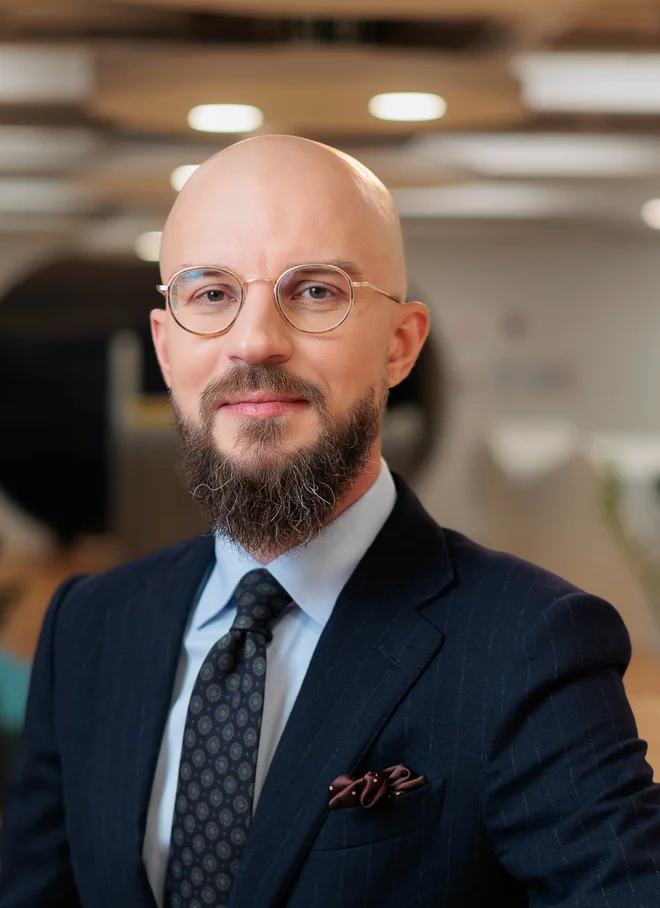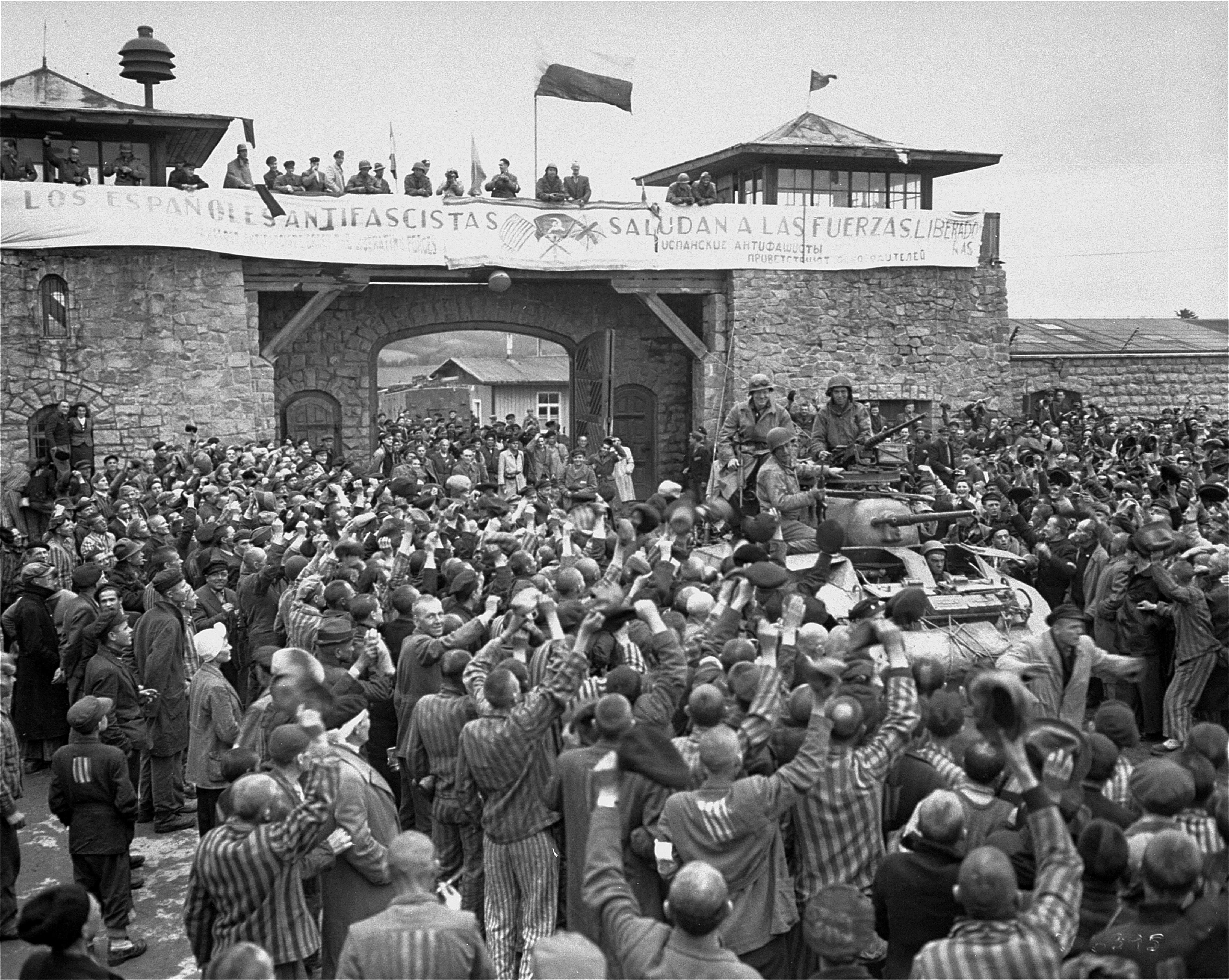Russian deserters in exile. They run away from war and secret services
Konstantin Bubnow realized that he would have to reveal his comrades when he came to the explosion on the field of Battle of Izium and heard the screams that persecute him to this day. « I thought it was the end. For the first minutes I saw nothing, I felt nothing and heard anything »-the 23-year-old tells the phone about the traumatic moment in the first weeks of the war in a small town in east of Ukraine. Bubnow actually has a different name, but his name must remain a secret. Anyone who deserts is punishable in Russia up to 15 years in prison or death.
The fate of the Russian pilot Maxim Kuźminowa, who in 2023 kidnapped his Mi-8 helicopter to Ukraine, became known all over the world. He died in February in Spain. An act with the features of similar murders committed by Russian secret services and carrying a crystal clear warning for deserters. However, more and more young soldiers are taking risks. Journalists « Welta » met with deserters and their helpers to talk about their motivations and fears. The image of the army, which is distributed by Putin, is bursting unconditionally for Russia.
For Bubnov it was a long journey to exile. He stayed in the clinic for a year, hid for the next year in his hometown of Bryńsk. He changed the apartment, did not respond to the calls of the commanders – until August, when he was exposed and was to be sent to his unit. He was lucky that he was to see a doctor first. Instead, he went to Belarus, and from there he flew to another Soviet country.
According to independent Russian media, « Mediazona » from the start of mobilization in September 2022, the courts received over 13,000. cases of « opposition from conscience ». At the end of July in 2024 there were more of them than in the whole previous year. Many deserters are in Armenia and Kazakhstan, where Russian citizens can travel without a passport. Some managed to get to France, just like a 33-year-old officer who was sitting in a park in Choisy-Le-Roi in the suburbs of Paris on October. Here is Roman Ivanov. He speaks only in Russian, everything in France is new and foreign to him. Waiting for asylum decision.
Russian soldier sent to death
« It seems unreal. I never thought I would go abroad, let alone live here, » says Ivanov. During the conversation, he smiles, but when it comes to his mother who raised him alone, he wrinkles his eyebrows:
She is still in Russia. I don’t want her to suffer, but hence I can’t help her
In fear of repression of her, his identity should remain a secret. My mother sent Ivanov to the army after school to take care of him. First, he attended the Military Academy, and then worked in anti -aircraft defense forces.
« When Russia invaded Ukraine, I realized that it was useless. I knew we would be sent to death. I had other plans for life, » he says. When he was appointed to serve after the invasion of Ukraine, he was given two possibilities: front or prison. But Ivanov refused to go to the war and was accused. Before the trial, he turned to the « Get Lost » organization, which helps to escape deserters and conscripts.
The founder of the organization, Russian oppositionist Grigory Swierdlin, claims that from the beginning of 2022 about 40,000 have been contacted with him and his people. people. 90 percent of them were not yet in the army and wanted to avoid calling. 1100 Russians came for help in the planned desertion. « Down » goal? That Putin would have one soldier less. He contacts people more and more often, says Sverdlin living in Spain:
We attribute this to war fatigue and disbelief that there will be a rotation of mobilized people
At the « Get Lost » command, Roman traveled by bus. He escaped with other soldiers to Belarus by cars and trains. From there, the plane flew to Kazakhstan. Because the local security authorities work closely with Moscow – where he was wanted – he was afraid that he would be arrested. « Kazakhstan authorities turn a blind eye to Russian deserters, » says Denis Dzhivaga, director of the International Human Rights Office in Kazakhstan. Of course, they are not completely safe there. Ivanov received permission to enter from the French authorities.
In the meantime, he founded the organization « Farewell to weapons » – based on the title of the world -famous novel by Ernest Hemingway. « The goal of the organization is to show others on personal examples that they do not have to participate in the criminal war, » says Ivanov. His non -governmental organization has already helped six deserters to continue their trip to Europe. One of the groups that provided support was the Parisian Human Rights Organization of Russie-Libertés. « Nobody in Europe is ready to welcome former military from Russia with open arms, » says chairwoman Olga Prokopeva. « These people do not belong to any category and therefore do not receive a visa. Many people also have no passports, » he adds. Obtaining a residence permit is time consuming and tedious.
Journalist Welta met in Paris with two more deserters: 27-year-old Igor Kotletkin from Moscow (name changed) and 32-year-old Andriej Amonov from the Republic of Sacha. When mobilization began, the ammonium employer released it. The next day he was taken to the barracks. « It was the biggest mistake in my life that I went there. But I always listened to my superiors and never thought about escaping, » he says, thoroughly nodding at the back and back. He sits on the porch of the Parisian cafe with a low face hat. Sometimes it looks around. Does anyone look for him?
When his unit learned that he would be moved to Ukraine, Amonov escaped through the hole in the fence:
I went by taxi to the nearest store, bought new clothes, and I threw the military uniform in the trash bin
Today he is waiting in Bordeaux for a decision on refugee status. When he came to France, he initially felt free and safe:
But the more time passes, the more I realize that the situation is very serious and that I always have to be on guard
Why run at all? The deserters’ answers were the same: they did not want to support the invasion of Ukraine and wanted to avoid their own death. Kotletkin tells in the hall of the Paris hotel that soon after the war began, he even took part in anti -war demonstrations, although he as a soldier was severely prohibited. Until then, he simply treated military service as a work:
Then I began to be very ashamed of belonging to an organization that is currently seen all over the world as destructive
He speaks quietly, doing a lot of pauses to make a word carefully. Prosecution is often accompanied by social ostracism. When Amonow escaped to Kazakhstan, the inhabitants of his hometown recognized him as a traitor. Former colleagues sent him angry news:
When I heard it for the first time, it hurt me a lot. I didn’t kill anyone, I didn’t do anything wrong. Why are you talking about me so much?
The case of a pilot murdered in Spain concerns the deserter community. « I haven’t committed such a bold act, but I have the impression that there is no safety anywhere, » says Kotletkin. France is a safe country, « but I am always careful and I look around the streets. » He broke up contact with his family. For their safety. Some relatives depend on government support; He is afraid that they can lose them as a result of contact with him. It hurts, he misses loved ones:
I hope that one day I will be able to come back, but I’m not sure if it will ever be possible
Konstantin Bubn, who fought in Isium, also does not know when his family will see you again. He left his mother who suffered from cancer. Despite suffering, she would support his escape:
She always said: I did not raise you so that you would die on the front
The article was based on the translation of the text from Bild.de. Its author is Ekaterina Bodyagina
This article was released on the first time on the page of Fakt on 25.11.2024
Thank you that you have read our article to the end. Stay up to date! Watch us in Google news.





